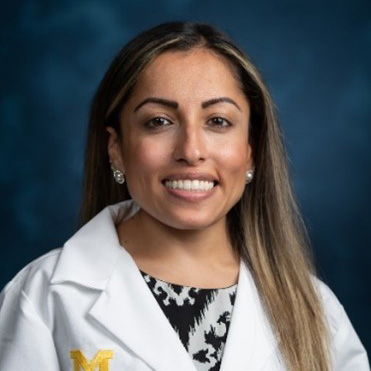Meaningful Mentorship: Early Career Conversations
“In learning, you will teach, and in teaching, you will learn.”
Phil Collins’ words describes the journey of mentorship which has shaped and guided my academic journey. I have been fortunate to cross paths with those who inspire, who teach, who empower and are exemplary role models. I had the privilege to work with Mir Babar Basir, DO, FACC, during my general cardiology fellowship at Henry Ford Hospital (HFH) in Detroit, Michigan. He is one who truly lifts fellows with his mentorship and I couldn’t pass this opportunity to highlight some words of wisdom.
Dr. Basir completed his cardiology, interventional cardiology and complex and high-risk interventional training at HFH. He serves as the Director of the STEMI program and Acute Mechanical Circulatory Support program at HFH and specializes in the treatment of complex coronary interventions including chronic total occlusions and use of advanced mechanical circulatory support.
What inspires you to come to work every day?
Caring for patients motivates me the most. I was inspired by my parents who are both physicians. My dad is a neonatologist. I remember him being invited to birthday parties for critically ill premature babies as they got older and the joy it brought him. My mom is a pathologist and I remember she would come teach my grade school class about the effects of smoking using a histologic lung sample. They both inspired my path to medicine.
Your long list of accomplishments includes teaching, research, clinical trials. How do you maintain a work-life balance?
I truly believe that work life balance is an important aspect achieving a long and happy career. It is important to prioritize your specific career goals, and this can be a dynamic process. I am fortunate to have a great relationship with my family. My wife carries the workload at home and gives me a lot of support and love. She understands the clinical and academic demands that I encounter. Similarly, I try to involve my kids in all the work that I am doing – from reviewing cath films to bringing home expired equipment for them to play with. However, as I approach mid-career, my priorities are changing. I am learning to say “no” to more opportunities and spend more time with family.
What were you looking for in an ideal career? Did expectations meet reality?
First and foremost, I wanted to be a great clinician – someone who patients and families trusted. I wanted to perform complex and high-risk PCI safely and provide patients and their families confidence that I could help them. Secondly, I wanted to perform clinically meaningful research that would be impactful and help patients. Lastly, I wanted to be involved in teaching fellows and helping them in the same way others helped me.
Regarding expectations meeting reality, I am very proud of my clinical accomplishments thus far. I truly believe I perform very high-quality PCI with very good outcomes. I hope that I can continue to improve my skills because our field continuously evolves. With regards to research, I honestly don’t set myself up with high expectations. Whether I help influence change from my research, only time will tell. Similarly, I know for sure that I am not the best teacher or mentor, but you deciding to interview me is a reasonable sign that I am not doing a horrible job either!
I will say what gives me a tremendous amount of joy and professional satisfaction are the colleagues and friends that I work with. I wake up excited to go to work so I can learn and interact with people who I genuinely care for.
What do you wish you knew at my stage as a fellow or someone who is about to start their career?
I would remind myself that things do not always fall into place as expected. Step A will not always lead to step B and that is okay. At times, it is difficult to predict opportunities and the path you will embark on. I could have never predicted my career path. I think we should all continuously reflect upon our careers and ask ourselves if we are happy? Do we enjoy what we do? Do we have work-life balance? As cardiologists, we are programmed to work hard, especially early in our careers. We shouldn’t forget to appreciate other important things in life such as family, hobbies, life outside of work. At the same time, we have a responsibility to our patients and their families.
This article was written by Lindsey Aurora, Advanced Heart Failure & Transplant Fellow at University of Michigan. Twitter: @LAuroraMD
This content was developed independently from the content developed for ACC.org. This content was not reviewed by the American College of Cardiology (ACC) for medical accuracy and the content is provided on an "as is" basis. Inclusion on ACC.org does not constitute a guarantee or endorsement by the ACC and ACC makes no warranty that the content is accurate, complete or error-free. The content is not a substitute for personalized medical advice and is not intended to be used as the sole basis for making individualized medical or health-related decisions. Statements or opinions expressed in this content reflect the views of the authors and do not reflect the official policy of ACC.
